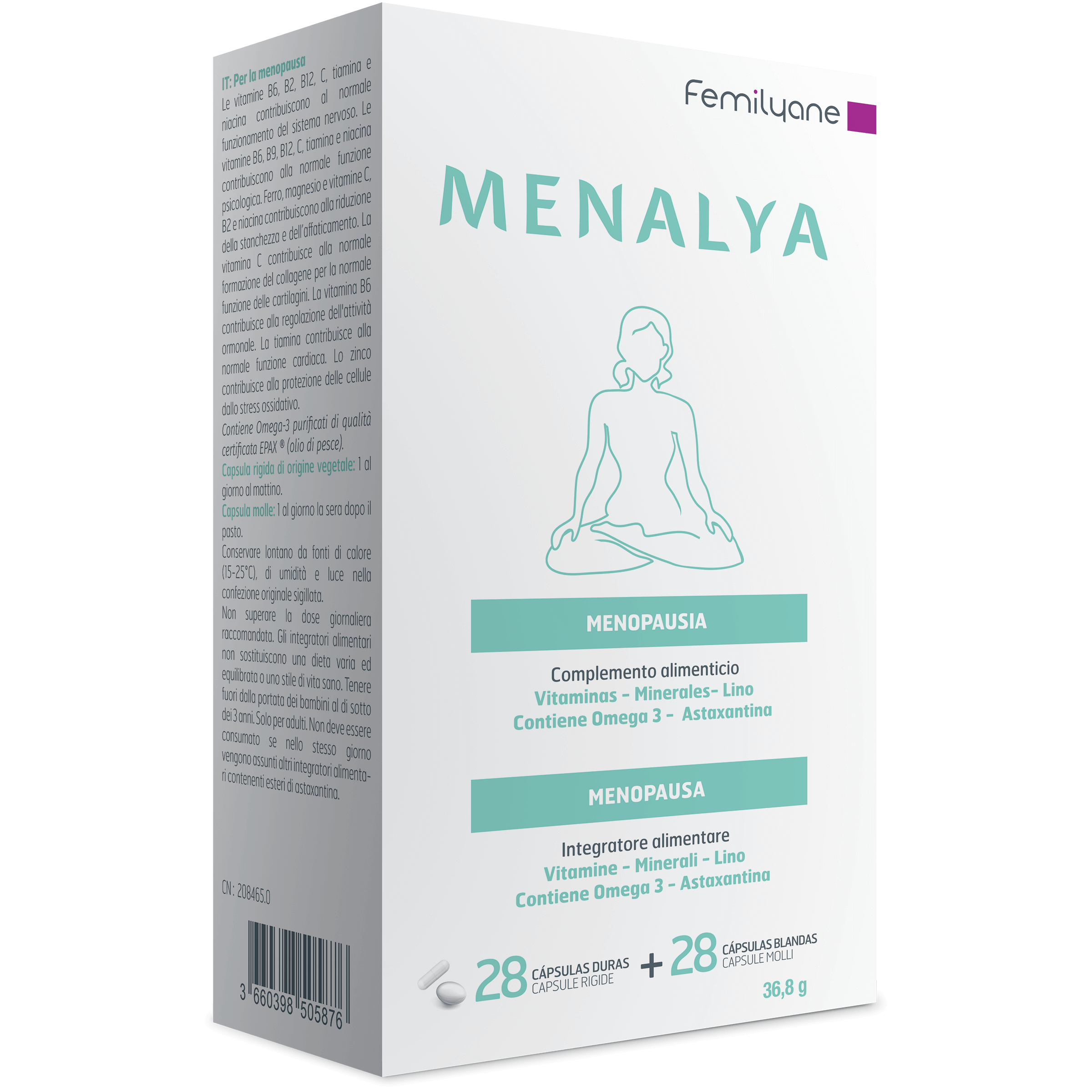Marked by the end of menstruation, menopause is often accompanied by a multitude of small disturbances that are more or less unpleasant depending on the woman. Dryness and discomfort often occur in the genital area, but these can be lessened by adopting good habits. Here is our advice for maintaining intimate well-being in your 50s and beyond.
Understanding menopause
Menopause is a natural phenomenon which generally occurs around the age of 50. It marks the end of a woman’s fertile phase, which begins at puberty. During menopause, the ovaries stop producing sex hormones (oestrogen and progesterone) and ovulation stops, as do a woman’s periods.
Menopause does not happen suddenly. It occurs after a transitory phase called premenopause, which can last from 2 to 7 years. During this time, ovulation and periods become irregular and hormone levels can vary significantly: periods of excess hormones alternate with others when, on the contrary, hormones are lacking. The times when hormone levels are low become increasingly frequent, until menopause occurs. This process is often accompanied by rather unpleasant symptoms whose intensity varies from woman to woman: hot flashes, mood swings, trouble sleeping, lower sex drive, weight gain, osteoporosis, etc.

The consequences of menopause on the intimate area
Before menopause, the vulva and vagina are constantly kept moist by the secretions which flow from the vagina. This natural lubrication is essential for a comfortable intimate area and, just like the fragile balance of the vagina’s protective flora, it is directly dependent on oestrogens.
But during menopause, oestrogen levels are significantly reduced, although they do not disappear completely: even though the ovaries have stopped their production, a small amount is still secreted by the adrenal glands and fatty tissue.
As a result of this significant decline in hormones, the vulvo-vaginal area becomes drier, less supple and more vulnerable: approximately 50% of women experience intimate dryness after the age of 50. This poor lubrication of the vagina and vulva can cause persistent discomfort and make sexual intercourse difficult or even painful, thus disturbing the sexual harmony of couples.

Some good habits to keep your intimate area feeling comfortable
There is something you can do about intimate discomfort during menopause: adopting the right habits often helps to improve the situation!
- • Pay attention to your intimate hygiene
- To maintain the delicate balance in your vaginal flora, your hygiene must be gentler than ever after menopause: never wash more than twice per day, and steer well clear of vaginal douches and soaps. Instead, use a mild, hydrating and soothing hygiene product specially formulated for dryness in the intimate area.
- • Prolong foreplay
- During this arousal phase, the vagina becomes increasingly moist to prepare for penetration. But the time needed to achieve this natural lubrication increases markedly after menopause, so do draw out foreplay in order to give your intimate area the time it needs to lubricate.
- • Use a lubricant if necessary
- Different types are available, so ask your chemist or doctor for advice and try a few different ones to see which suits you best. Standard lubricants are used just before sexual intercourse to make up for the lack of natural lubrication. Other vaginal lubricants or gels, often containing hyaluronic acid, lubricate and hydrate the vagina for several days and restore comfort to the intimate area, even when not engaging in sexual intercourse. In any case, avoid lubricants which contain petroleum jelly or oil, as these make condoms porous and ineffective.
- • In case of persistent discomfort, speak to your gynaecologist
- They will be able to offer the right medical solution for your situation. Today, a number of oestrogen-based hormonal therapies are available, in the form of pills, patches, gels or ovules, which can help restore sexual and intimate comfort while helping to overcome the other symptoms associated with menopause.





